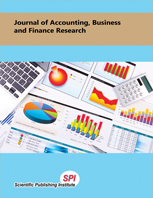Reciprocal Use of Artificial Intelligence in Audit Assignments
DOI:
https://doi.org/10.20448/2002.111.9.20Keywords:
Artificial intelligence, Auditor competence , Auditor’s professional skepticism, Client satisfaction.Abstract
The purpose of this study is to examine the use of artificial intelligence to improve audit quality and the effect of auditors’ competence and skepticism on client satisfaction. The purposive sampling method was chosen deliberately based on specific criteria determined by the researcher. The main source of data used in this study comes from primary data collected via questionnaires that were distributed directly via email to each respondent. Respondents in this study are middle-level management who were involved in the audit of companies listed on the Jakarta Stock Exchange. The sample in this study comprises 229 respondents who responses were processed and analyzed using partial least squares structural equation modeling (PLS-SEM). This research is based on the Society 5.0 era, where data connects and moves everything; a system that connects the virtual world and the real world. The era of the fourth industrial revolution is where the discovery of the Internet of Things (IoT) allows the interconnection between machines, big data, acquisition, machine learning, smart factories, among others, and financial reports to be made using a computerized system. The Covid-19 pandemic has had an impact on almost all sectors and has caused restrictions on many activities. As a result of the coronavirus, a large number of activities or work are now carried out from home. The results of this study prove that the effect of the application of artificial intelligence combined with auditor competence and professional skepticism create client satisfaction.


